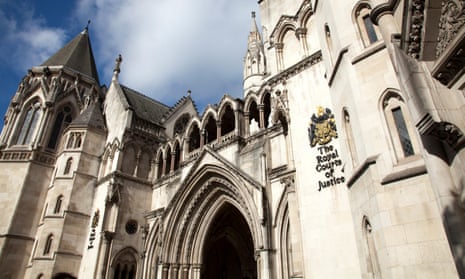A court ruling that a woman with learning disabilities must have an abortion against her wishes has been overturned on appeal.
The decision came after the woman’s mother, a former midwife, challenged a court order issued on Friday.
The appeal court judges Lord Justice McCombe, Lady Justice King and Lord Justice Jackson said they would give reasons for their decision at a later date.
Earlier, the Catholic church had described the court order as “sad and distressing”.
On Friday, the court of protection in London decided an abortion was in the best interests of the woman, who is in her 20s, and is 22 weeks pregnant. She has the mental capacity of a six- to nine-year-old child.
Justice Nathalie Lieven, who made the original ruling, described it as “heartbreaking”, saying: “I am acutely conscious of the fact that for the state to order a woman to have a termination where it appears that she doesn’t want it is an immense intrusion.”
But, she added, she had to act in the woman’s “best interests, not on society’s views of termination”.
The NHS trust that is caring for the woman had sought the court’s permission for doctors to terminate the pregnancy. Three specialists, an obstetrician and two psychiatrists, said a termination was the best option because of the risk to the woman’s psychiatric health if pregnancy continued.
Both the woman and her mother were opposed to the abortion, and the woman’s mother had offered to care for the child. A social worker who works with the woman said the pregnancy should continue.
The court was told last week that the woman had a “moderately severe” learning disorder and a mood disorder.
The judge said she was not sure the woman understood what having a baby meant. “I think she would like to have a baby in the same way she would like to have a nice doll,” Lieven said.
The woman may suffer more if the baby was born and then fostered or adopted than if the abortion was carried out, the judge said in the earlier ruling. She “would suffer greater trauma from having a baby removed. It would at that stage be a real baby,” she added.
The judge also suggested the woman’s mother may return to her home country at some point.
At the appeal court hearing, John McKendrick QC, representing the woman’s mother, argued that Lieven’s analysis of what was in the woman’s best interests was flawed.
“There is a clear overall view of a young woman who wishes to have a baby,” he told the court.
Earlier on Monday, before the appeal court’s decision, John Sherrington, a bishop in the Catholic diocese of Westminster, said: “Forcing a woman to have an abortion against her will, and that of her close family, infringes her human rights, not to mention the right of her unborn child to life in a family that has committed to caring for this child.
“In a free society like ours there is a delicate balance between the rights of the individual and the powers of the state.”
He added: “This case, for which all the information is not available, raises serious questions about the meaning of ‘best interests’ when a patient lacks mental capacity and is subject to the court’s decision against her will.”
At the earlier hearing, the judge was told that the circumstances of the conception were unclear and a police investigation was continuing.
Under Britain’s 1967 Abortion Act, abortions can be performed up to the 24th week of pregnancy.










